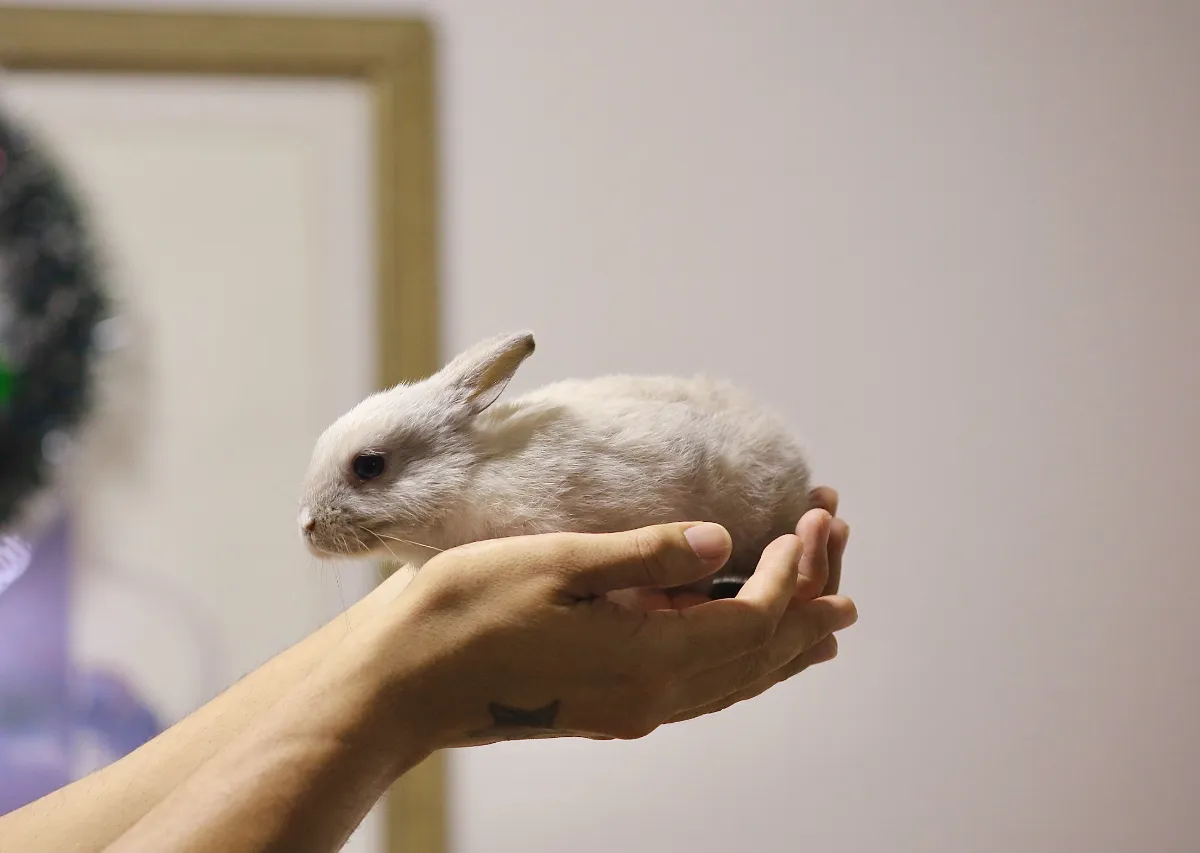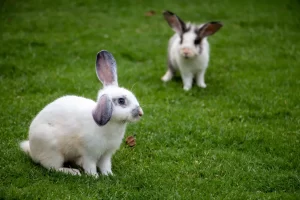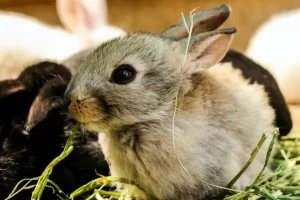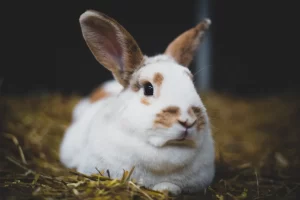Are you a loving rabbit owner, always striving to provide the best care?
Discover when to take your furry friend to the vet and ensure their well-being. From recognizing signs of illness to understanding common health issues, this article will guide you through the process.
Learn about preventive care, dental health, and when emergency veterinary care is needed.
By staying informed, you can be the best advocate for your precious rabbit’s health and happiness.
In This Article
- 1 Key Takeaways
- 2 Signs of Illness in Rabbits
- 3 Common Health Issues in Rabbits
- 4 Behavioral Changes That Require Vet Attention
- 5 Vaccinations and Preventive Care for Rabbits
- 6 Dental Health and Dental Problems in Rabbits
- 7 When to Seek Emergency Veterinary Care for Your Rabbit
- 8 Frequently Asked Questions
- 8.1 How Often Should I Take My Rabbit to the Vet for Check-Ups?
- 8.2 Are There Any Specific Dietary Requirements for Rabbits to Maintain Their Health?
- 8.3 Can Rabbits Transmit Any Diseases to Humans?
- 8.4 What Are the Most Common Surgical Procedures Performed on Rabbits?
- 8.5 How Can I Prevent My Rabbit From Developing Obesity?
- 9 Conclusion
Key Takeaways
- It is important to seek veterinary care for rabbits if they show signs of illness, such as a decrease in appetite, changes in urine or stool consistency, lethargy, sneezing, or discharge from the eyes or nose.
- Behavioral changes, such as vocalization changes, changes in eating habits, sudden aggression, or excessive lethargy, also require veterinary attention for rabbits.
- Regular check-ups with a veterinarian, vaccinations for protection against life-threatening diseases, dental care to prevent dental problems, and parasite prevention are essential for the preventive care of rabbits.
- Dental problems in rabbits, such as decreased appetite, drooling, and weight loss, require veterinary care for examination and treatment.
Signs of Illness in Rabbits
You should watch out for any changes in your rabbit’s behavior as they can be signs of illness. Rabbits are masters at hiding their pain, so it’s crucial to pay close attention to any warning signs that may indicate a health issue.
One common warning sign is a decrease in appetite. If your rabbit suddenly loses interest in food or stops eating altogether, it could be a sign of a digestive problem or dental issue.
Other signs to look out for include changes in urine or stool consistency, lethargy, sneezing, discharge from the eyes or nose, and changes in grooming habits.
If you notice any of these signs, it’s important to take your rabbit to the vet for a thorough examination. Treatment options will vary depending on the specific illness, but early detection and intervention can greatly improve your rabbit’s chances of recovery.
Common Health Issues in Rabbits
If your rabbit is experiencing common health issues, such as gastrointestinal issues or skin problems, it’s important to consult with a veterinarian for proper diagnosis and treatment.
Gastrointestinal issues in rabbits can manifest as symptoms like diarrhea, bloating, or loss of appetite. These problems can be caused by various factors such as diet, stress, or underlying medical conditions.
Skin problems in rabbits, on the other hand, can range from mites and fleas to fungal infections or allergies.
It’s crucial to seek veterinary care as soon as you notice any concerning signs in your rabbit’s health. A veterinarian will be able to properly assess your rabbit’s condition, conduct necessary tests, and provide appropriate treatment options.
Behavioral Changes That Require Vet Attention
When noticing behavioral changes in your rabbit, such as sudden aggression or excessive lethargy, it’s important to consult a veterinarian for proper evaluation and potential treatment options.
Rabbits, like any other pets, can experience changes in their behavior that may indicate underlying health issues. One important aspect to observe is vocalization changes. If your normally quiet rabbit suddenly becomes more vocal or stops making any sounds altogether, it could be a sign of pain or discomfort.
Additionally, changes in eating habits shouldn’t be ignored. Rabbits are known for their voracious appetite, so a sudden decrease or increase in food consumption could be a cause for concern.
A veterinarian can conduct a thorough examination and run necessary tests to determine the cause of these behavioral changes and provide appropriate treatment to ensure your rabbit’s well-being.
Vaccinations and Preventive Care for Rabbits
Make sure to schedule regular check-ups with your veterinarian to ensure your rabbit receives the necessary vaccinations and preventive care. Regular vet visits are crucial for maintaining your rabbit’s health and well-being.
Here are four key aspects of vaccinations and preventive care for rabbits:
- Vaccinations: Rabbits should receive vaccinations to protect them from life-threatening diseases such as rabbit hemorrhagic disease and myxomatosis. Your veterinarian will recommend a vaccination schedule based on your rabbit’s age and health.
- Dental care: Rabbits have continuously growing teeth, and without proper dental care, they can develop dental problems. Regular check-ups can help identify dental issues early on and prevent complications.
- Parasite prevention: Rabbits are susceptible to parasites like fleas, mites, and worms. Your vet can prescribe suitable preventive medications and provide advice on maintaining a parasite-free environment.
- Diet and nutrition: A balanced and appropriate diet is essential for your rabbit’s overall health. Your veterinarian can guide you on proper feeding practices, including the right balance of hay, pellets, and fresh vegetables.
Dental Health and Dental Problems in Rabbits
To maintain optimal dental health in your rabbit, it’s important to regularly monitor their teeth and gums, as well as provide appropriate chew toys and a balanced diet. Rabbit dental care plays a crucial role in preventing tooth problems that can cause pain and discomfort for your furry friend.
Rabbits’ teeth continuously grow throughout their lives, so regular check-ups are essential to ensure that their teeth are wearing down properly. Signs of dental problems in rabbits include decreased appetite, drooling, weight loss, and difficulty eating or grooming. If you notice any of these symptoms, it’s crucial to seek veterinary care immediately.
A veterinarian specializing in rabbit dental care can perform a thorough examination and recommend the appropriate treatment, such as teeth trimming, to alleviate your rabbit’s discomfort. Remember, a proactive approach to rabbit dental care is key to ensuring your furry companion’s overall wellbeing.
When to Seek Emergency Veterinary Care for Your Rabbit
If your rabbit is experiencing severe bleeding or difficulty breathing, it’s imperative that you immediately seek emergency veterinary care. As a responsible rabbit owner, it’s crucial to be aware of the signs of distress and know when to seek professional help.
Here are four emergency medical conditions in rabbits that require immediate attention:
- Gastrointestinal Stasis: If your rabbit stops eating or drinking, experiences bloating, or has a decrease in fecal production, it could be a sign of gastrointestinal stasis, a potentially life-threatening condition.
- Heat Stroke: Rabbits are sensitive to heat and can easily suffer from heat stroke. Signs include excessive panting, weakness, and drooling.
- Urinary Blockage: Symptoms of urinary blockage in rabbits include straining to urinate, blood in urine, or complete inability to urinate.
- Seizures: If your rabbit suddenly starts twitching, convulsing, or losing consciousness, it may be experiencing a seizure, which requires immediate veterinary attention.
Frequently Asked Questions
How Often Should I Take My Rabbit to the Vet for Check-Ups?
You should take your rabbit to the vet for check-ups regularly. It’s important to ensure their health and catch any potential issues early. Regular rabbit grooming and watching for signs of illness are also important.
Are There Any Specific Dietary Requirements for Rabbits to Maintain Their Health?
To maintain your rabbit’s health, it’s important to pay attention to their dietary requirements. Proper rabbit nutrition is crucial for their well-being. Providing a balanced rabbit diet will help keep them healthy and prevent potential health issues.
Can Rabbits Transmit Any Diseases to Humans?
Rabbits can transmit zoonotic risks to humans, so it’s important to take precautions. Regular vet check-ups are crucial to ensure your rabbit’s health and prevent any potential transmission of diseases to you or your family.
What Are the Most Common Surgical Procedures Performed on Rabbits?
When deciding whether to take your rabbit to the vet, it’s important to consider the most common surgical procedures performed on rabbits and the necessary post-surgery care they require.
How Can I Prevent My Rabbit From Developing Obesity?
To prevent your rabbit from developing obesity, it is important to provide regular exercise and maintain a balanced diet. Encourage daily playtime, provide toys and obstacles, and feed them a variety of fresh vegetables and limited amounts of pellets.
Conclusion
So, now you know when to take your rabbit to the vet. Remember, it’s always best to err on the side of caution and seek medical attention if you notice any signs of illness or behavioral changes.
Vaccinations and preventive care are crucial for your furry friend’s well-being, and don’t forget about dental health too.
And, of course, in case of emergencies, don’t hesitate to rush your beloved bunny to the nearest veterinary clinic.
After all, rabbits deserve the same level of care and attention as any other pet.





